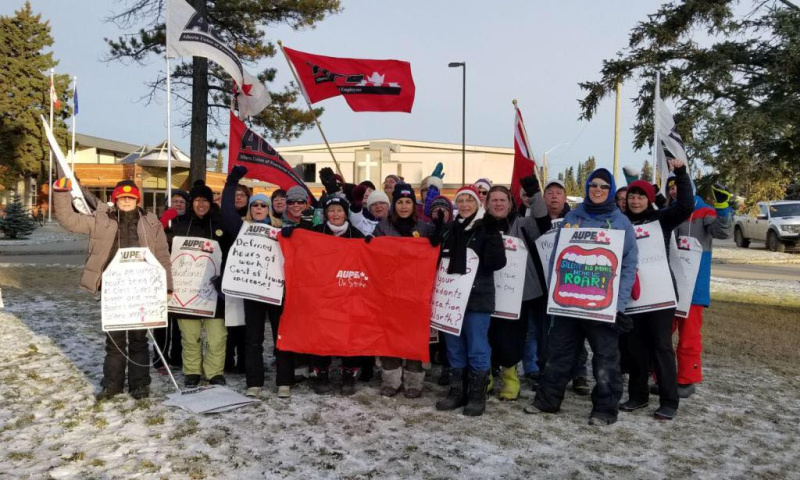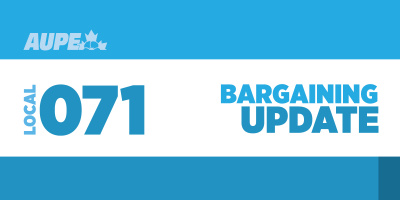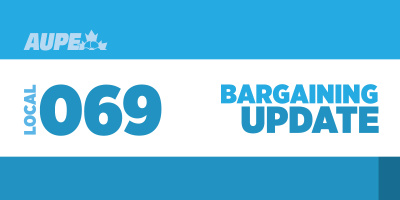By Alexander Delorme, Communications Staff
Stomping steps and rallying cries energized the air at the University of Calgary this spring.
AUPE members working for the university sent a shockwave across campus with massive protests against job cuts and wage cuts which, disturbingly, most affected women, workers of colour, and some of the institution’s lowest-paid employees.
For a university that boasts about its commitment to diversity, equity, and inclusion, it is both hypocritical and disgraceful to make cuts to AUPE members’ livelihoods in this way, and these members made that message loud and clear through their protests.
Their fight is emblematic of the struggles faced by education workers in Alberta. Whether you ask post-secondary workers like those at the U of C or the AUPE members at Living Waters Catholic Schools—who were on strike just a few years ago—you will hear the same story: the K-12 and post-secondary education sectors are suffering from cuts and neglect that started even before the UCP government.
"Any cut is a cut too much."
AUPE Vice-President Bobby-Joe Borodey has been an employee at Olds College for over 20 years. She knows the importance of education better than anyone—both for the local economy and the young Albertans entering local institutions like Olds College.
“Cuts to education have a huge impact on the community,” she says. “Especially post-secondary institutions in rural communities. In most cases, those institutions are the number one economic driver within those towns. Cuts mean students end up not pursuing post-secondary education or they leave for an education elsewhere, sometimes leaving Alberta for good.”
Staffing levels in the education sector plummeted when the COVID-19 pandemic forced us to stay home and physically distance. While many AUPE members have now returned to work, not every cut made during the height of the pandemic has been restored.

“Any cut is a cut too much,” says Borodey. “Time and effort spent thinking about how to improve your workplace and help students takes a back seat when you have to ask yourself: ‘Am I going to keep my job? Am I going to be able to pay my rent?’”
According to Borodey, overcoming cuts and other obstacles in education starts with active communication.
“What's happening in one institution is often happening in another institution,” she says. "We really need to work on breaking down barriers and silos. We need to come together more so we can talk about what's working as well as the challenges we are all facing.
“And then we have to come up with collaborative solutions: because our strength is in numbers.”
AUPE members have begun doing just that. Negotiating team members and activists working for institutions throughout the province have started communication channels to keep each other informed on the state of bargaining as well as to cooperate on future awareness campaigns and actions.
Open lines of communication like this can be the first step in organizing major actions: imagine another day of solidarity at the U of C but with workers from all post-secondary institutions in Calgary, for example.
"Having a healthy post-secondary industry helps everyone, regardless of where you happen to be in your education journey. Education impacts everything around you within our province."
Members are also preparing for serious organizing at their workplaces, including picket captain recruitment. Picket captains act as worksite leaders in the event of a strike or lockout, something members should be prepared for in future rounds of bargaining.
“AUPE members in the education sector are now going to head back to the bargaining table at roughly the same time,” says Borodey. “Something like that rarely happens, so now is our opportunity to coordinate with each other and use our collective power to improve our working conditions as well as learning conditions for Albertans.
“Having a healthy post-secondary industry helps everyone, regardless of where you happen to be in your education journey. Education impacts everything around you within our province.”

